I protest!
Against War and Fascism. For Women’s suffrage. Against the use of 1080 pesticide. Against the Vietnam War. Against wage reductions. Against whaling. Against the Anti-Smacking Bill. Against French Nuclear testing in the Pacific. For pay equity. Against the Springbok Tour of 1981. Against abortion. Against the sale or alienation of Māori land.
Against the formation of a breakaway union for engine-drivers – otherwise known as the Waihi Miner’s Strike of 1912.
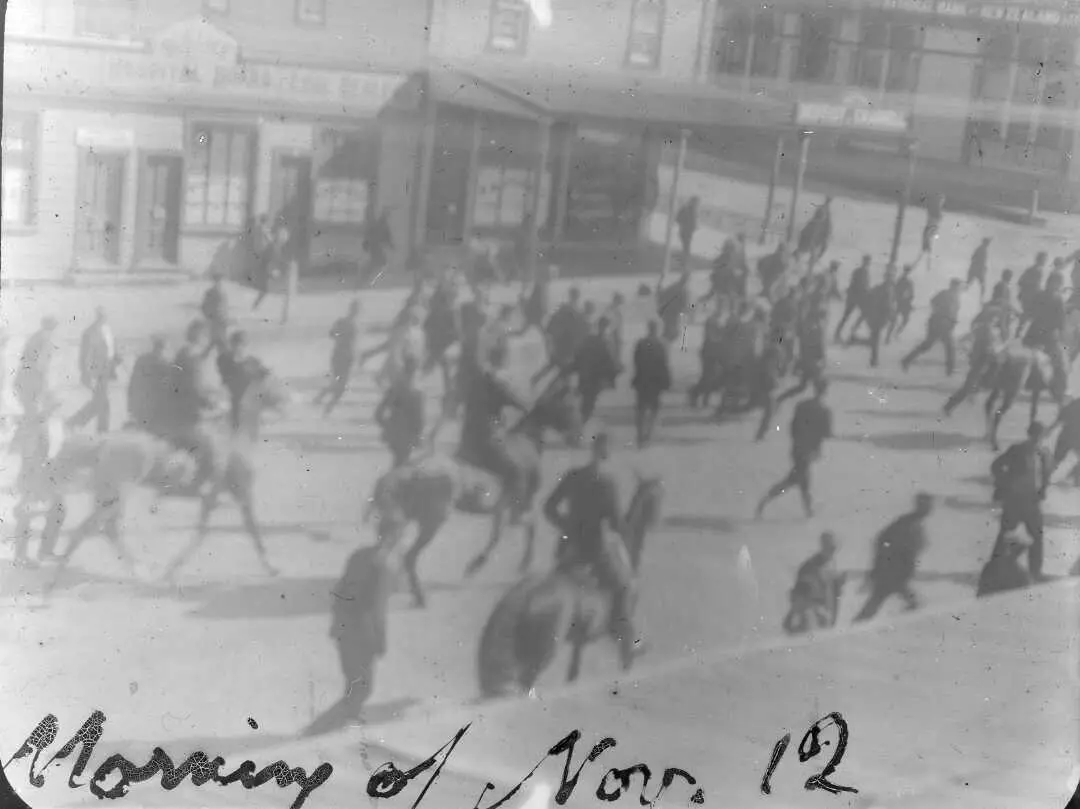
Morning of November 12 during the Waihi miners' strike of 1912. Ref. 1/2-044240-F
New Zealand has, in our relatively short history, seen a lot of protests. The ability to mount a free and peaceful protest, some would say, is a sign of a healthy nation. But protests don’t always end peacefully.
Today, November 12th, marks a century since the Waihi Miners' Strike.
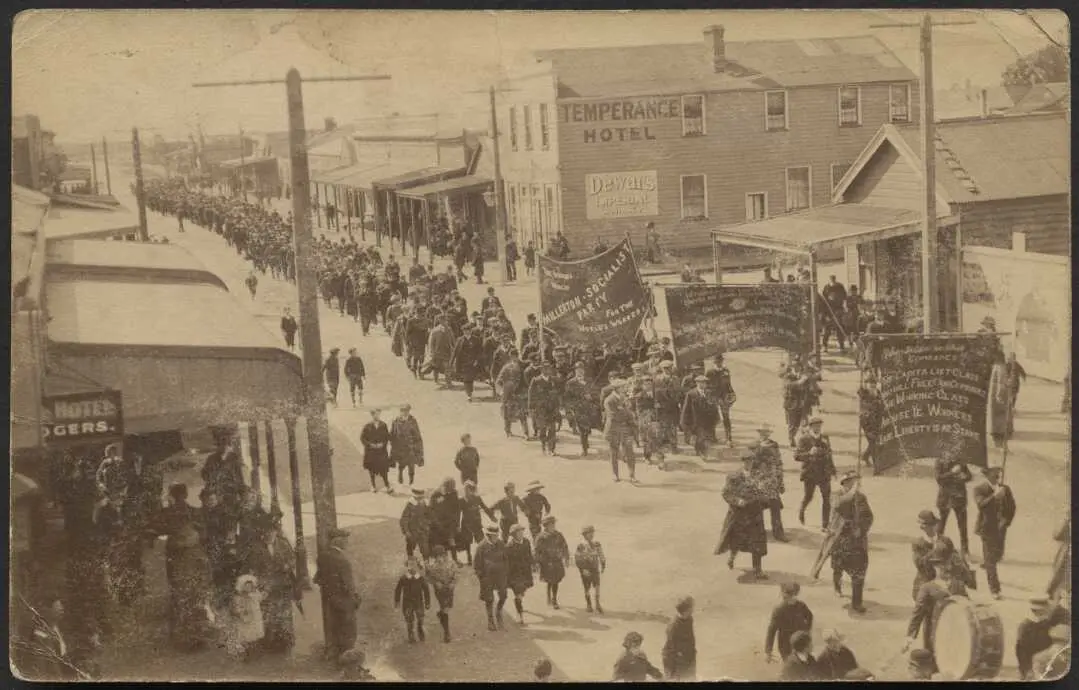
Millerton Socialist Party march during the Waihi miners' strike, Waihi. Ref. PAColl-5792-07
On ‘Black Tuesday’, as it came to be known, a striker, Fred Evans, was killed. He was the first of only two New Zealanders to die in an industrial dispute.
A peaceful ‘stop-work’ protest began in May 1912 and continued into July, when a new government (the conservative Reform Party under William Massey) came to power.
The new Prime Minister and the Police Commissioner, John Cullen, decided to act on this issue which by now the entire country was following. The police presence in Waihi was increased and they jailed many protesters, some on seemingly spurious charges such as using obscene language.
Eventually, about 80 policemen, a tenth of the country’s entire force at the time, were sent to Waihi and surrounding areas.
In October the Waihi Goldmining Company brought in non-union workers - known less neutrally as strike-breakers - to reopen the mines.
The conflict peaked on November 12, when strike-breakers and police stormed the miners’ hall where unionists were congregating.
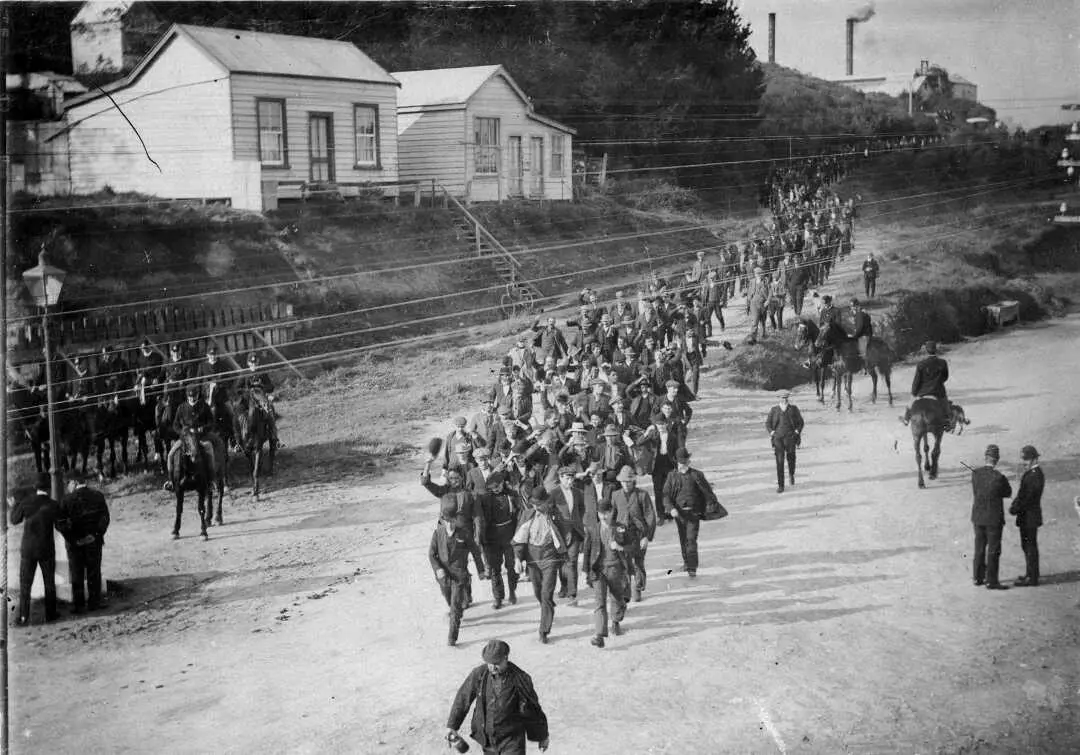
Strikebreakers, including Hubert Percy Barry, during the 1912 Waihi miners' strike. Ref. 1/2-116710-F
As people pushed into the miners’ hall shots were fired and some combatants were injured, including a Constable, and Mr. Fred Evans. Mr. Evans was a married man with two young children, who had slept in the hall the night before to guard against it being burnt down. After being injured he was taken to hospital where he later died of his injuries.
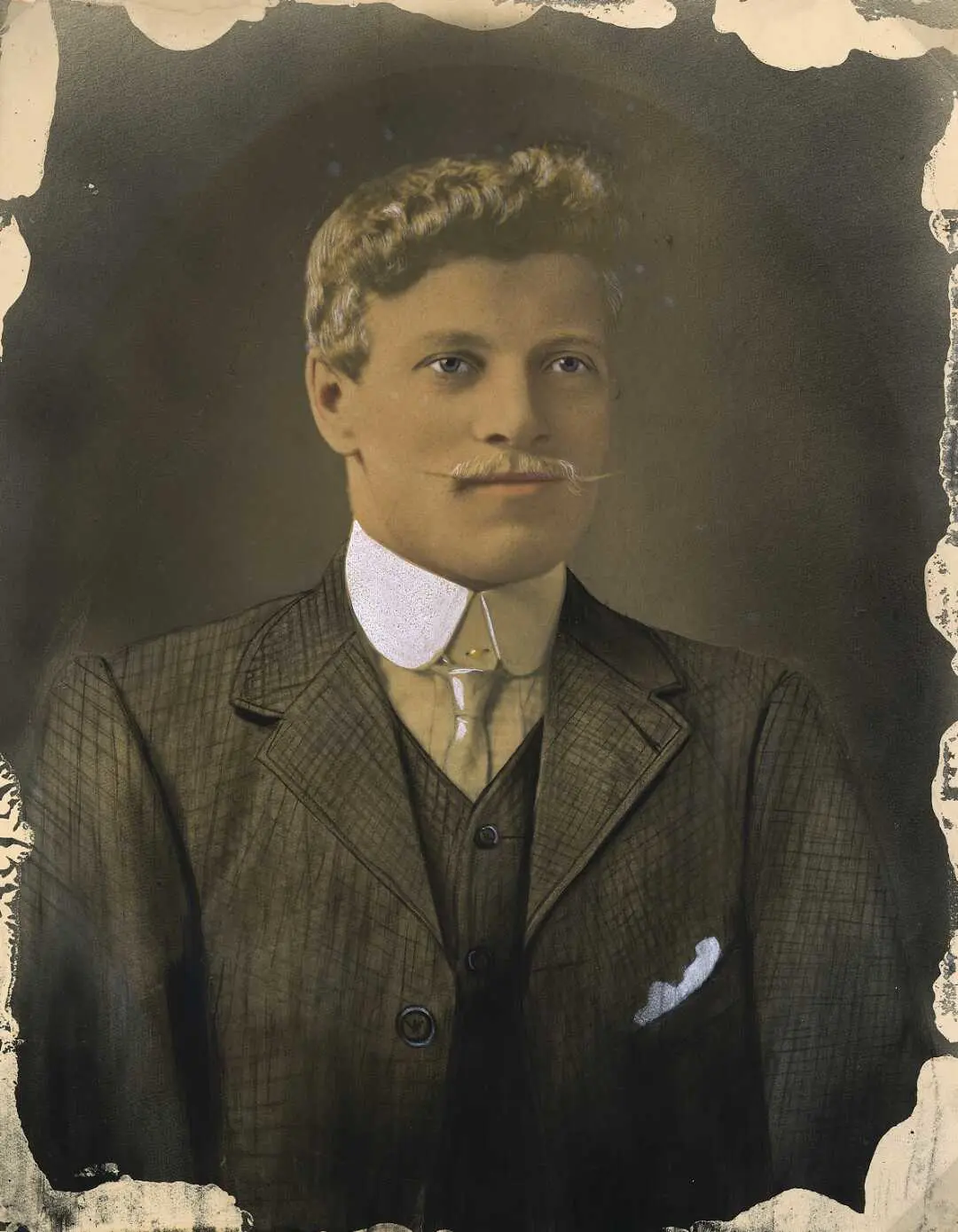
Portrait of Frederick George Evans. Ref. PAColl-3736
The Waihi Miner’s Strike has become a well-known event in New Zealand’s industrial and labour history. If you’re interested in closer reportage of the events, contemporary articles on Papers Past are fascinating – especially reporting close to the date of the event.
Other sites of protest, such as Parihaka, Bastion Point, New Zealand’s foreshore and seabed, and Lake Manapouri live strongly in the national memory.
The Alexander Turnbull Library, in its large heritage collections, has many images, newspaper reports, journal articles, posters, badges, and leaflets relating to protests in New Zealand - from all points on the political spectrum. We care for these items and make them available for research as part of the important history of our right to be for or against.
We are also extremely thankful that New Zealanders such as Dylan Owen continue to donate images that will preserve the memory of civil debate in the public arena for generations to come.
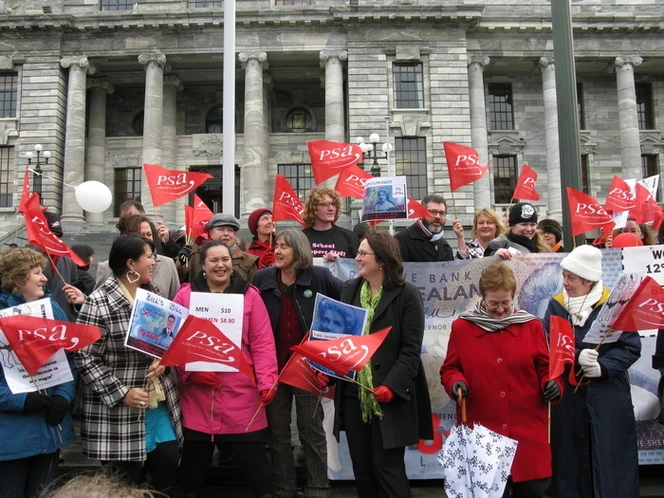
Dylan Owen, photographs relating to the Pay equity protest at Parliament, Wellington in June 2009. Ref. ADL-000517
Teaser image: Who said 600? ; Women marchers support the Waihi miners' strike. Ref. PAColl-4586-02